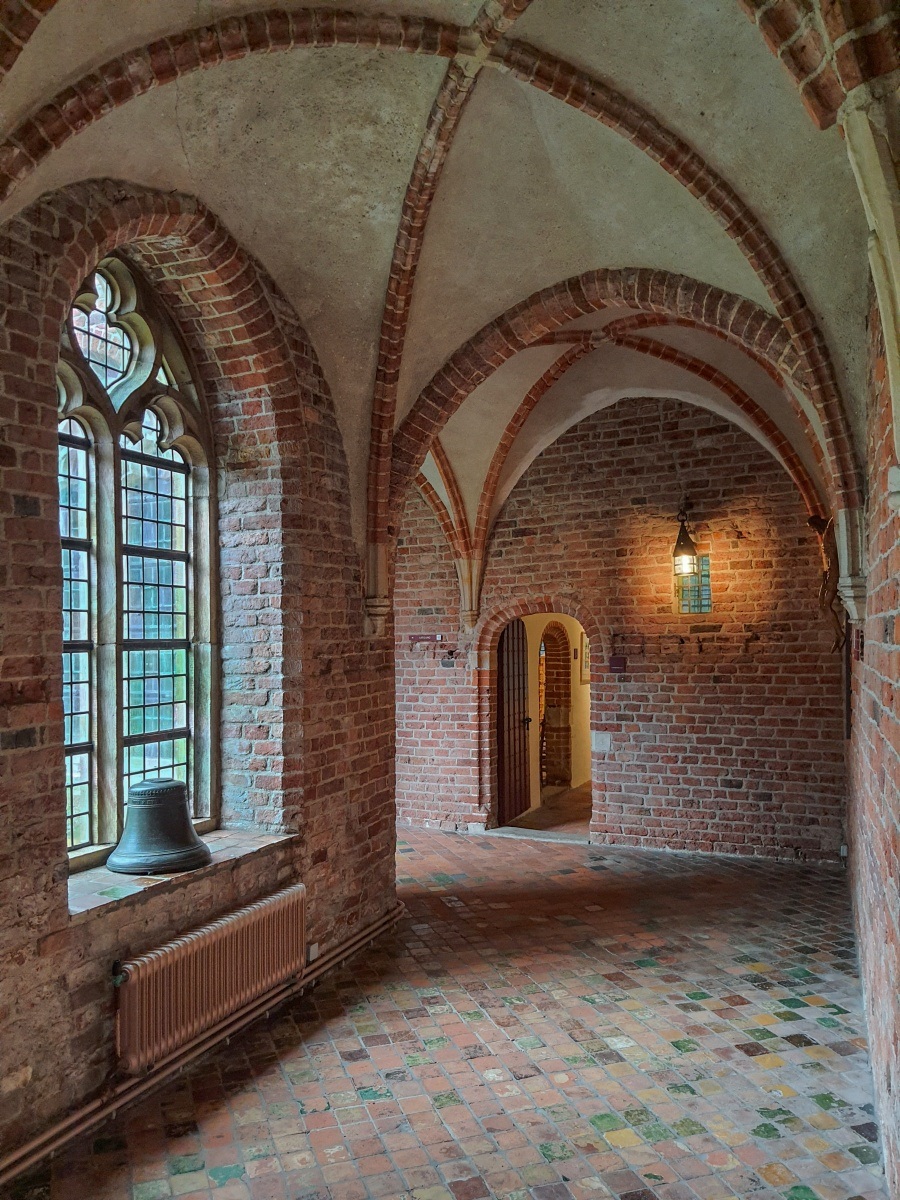Father Feito
It is indisputable that I have north Netherlands Catholic roots. I can trace many family lines back to the sixteenth century (almost all in the same neck of the woods), and thus, by extrapolation, to undocumented ancestors in the fifteenth century. It’s safe to say then that my people, and their culture, were largely Reformed during the last five hundred years and largely Roman Catholic before then.
The evidence for this dichotomy in my heritage is abundant. Church buildings that started out Catholic and ended up Protestant are everywhere. At whatever point these buildings changed affiliation, the villagers or city folk who were worshipping there before continued worshipping there after. There may have been iconoclasms of sanctuaries and theologies, but the churches, steeples and people remained the same.

We visited the Ter Apel Monastery during our van der Laan family reunion last summer. This wonderfully preserved Klooster is just fifteen kilometers south of the Renneborg farm where my Opa grew up, farmed and married, and where my mother was born. It is a latecomer (1465) to Catholicism in Magna Frisia, where the amalgam of Germani, Frisii, Angles, Saxons, Jutes and Franks settled into Christianity around the eighth century.
It is common to consider other cultures and our own origins as being more primitive, technically and spiritually. But I’m inclined to think that the Middle Age Christians from whom I descend could be just as capable, astute, thoughtful and sincere as I am. So I imagine the brothers of Ter Apel to be more than just papist caricatures in their hospitality ministry, and the Westerwolde parish folk to include many devout, cultivating if not cultivated Christians.
Indeed, evidence suggests that the Reformation did not strike Dutch soil (or peat) like lightning, but that it had been brewing for some time already. The Westerwolders and the Ter Apel brothers were ready for it, and when Spanish Catholics were finally ousted in 1594, the locals were freed to be themselves, the monastery abbot converted and married, and the monastery continued on in its mission.
I can attest to this continuity personally because one of my direct ancestors, twelve generations back, was a priest. Feito Ruardi, born around 1520 in Friesland, displayed the more broad-minded approach to religion that was current in and around Groningen. His evangelically minded mediation for the Catholic side flipped over to Calvinism, and he became a renowned founder and Reformed preacher until his death in 1602. Within the next three generations he would become related to another half dozen pastors in my family line.
No doubt, some of these Reformed folk could be just as doctrinaire as the Catholics had been. They certainly held their grudge against papist domination long enough. But there is a general tolerance built into Dutch culture, perhaps rising out of its position as a smaller trading nation, that has become widely recognized. Amsterdam, and then New Amsterdam were remarkable amalgams of race, religion and culture. And then New York, as the beating heart of the emerging United States, fired its melting pot mentality. But that’s another story.
My point is, where so many see division, I see continuity. I’m proud to be part of a tradition that is connected, not by ideology, but by real people, through many generations, who made the best of things, believed thoughtfully and tolerated diversity.
![]()